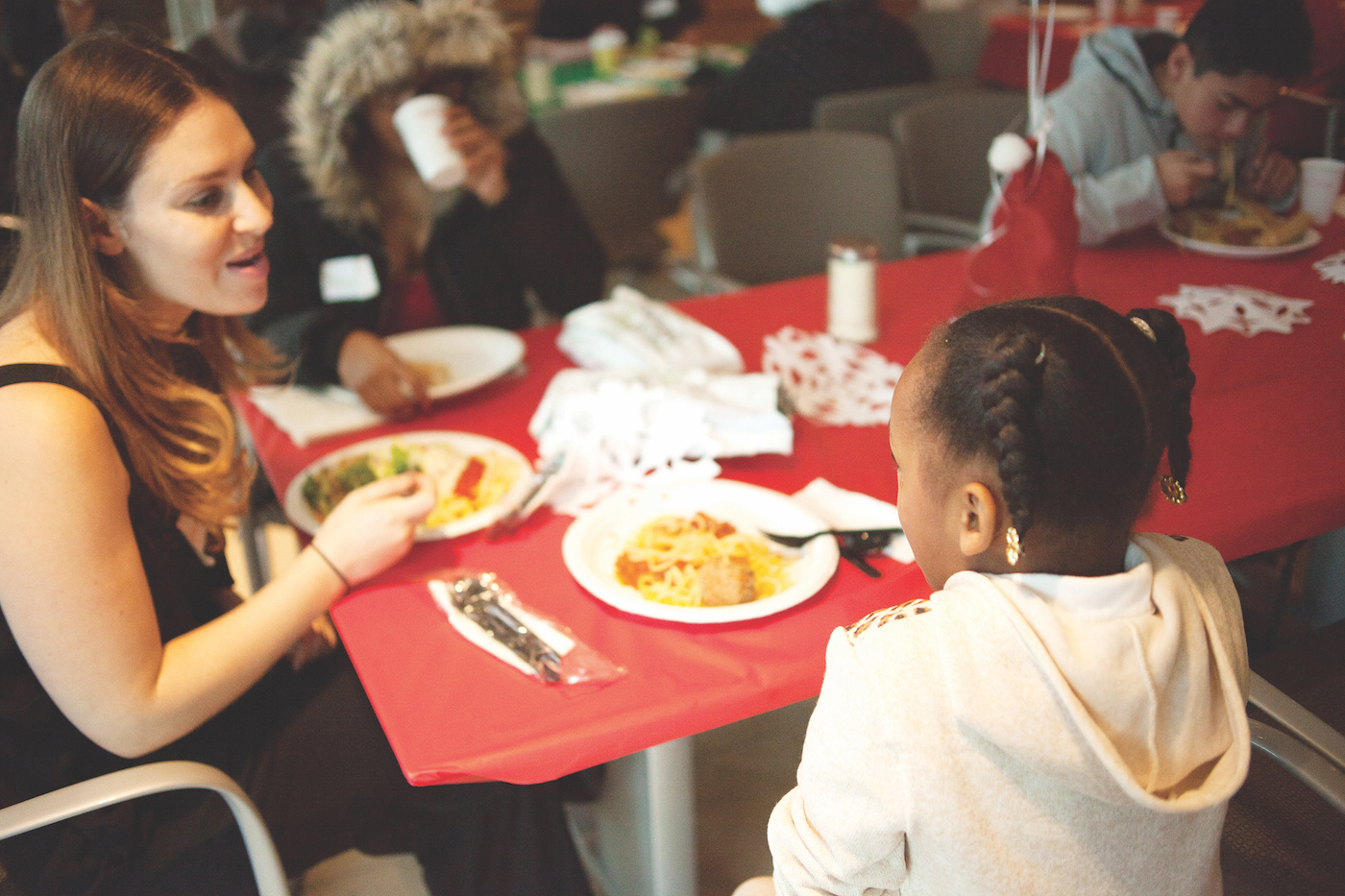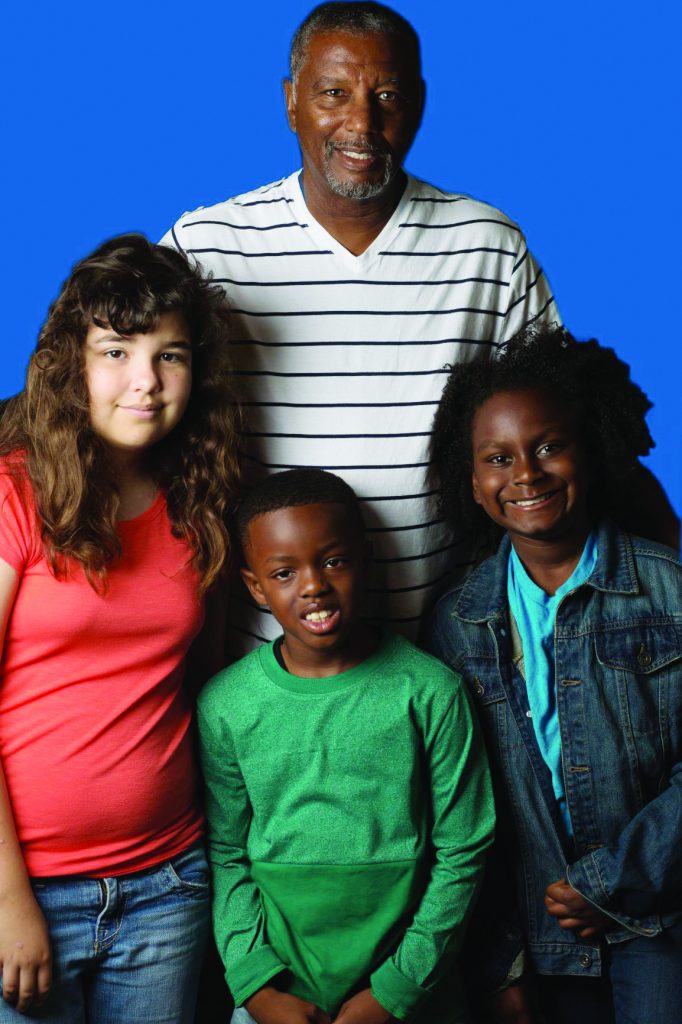Ordinary People Doing Extraordinary Things for Foster Children

Often, the first question foster youth ask their court appointed special advocates, or CASAs, is: Who’s paying you? The answer: Nobody. They’re volunteers – sworn officers of the Juvenile Dependency Court – whose sole purpose is to advocate on behalf of the best interest of children and youth in foster care.

“A CASA is often the only person in their network of support who is not paid to support them,” says Kate Durham, executive director of San Francisco CASA. “That is very meaningful, and allows for the kind of trust that’s needed in order for the young person to really benefit from that relationship and the CASA’s advocacy.”
When a child enters the foster care system, it is scary and traumatic; they’re confused about what’s happening and sometimes blame themselves, Durham says. Kids grow up very quickly in foster care, she adds, and as a result may become savvy and somewhat cynical, with a justifiable mistrust of adults. A CASA’s purpose is to be a force of stability, a consistent, trusted adult who will stay with the youth while they’re in foster care.
San Francisco CASA is an organization that recruits, screens, trains, and supervises the volunteers. Its job is to find volunteers who want to make a tangible difference by working one-on-one with a youth in San Francisco’s child welfare system. A CASA’s duties are to stay in regular contact with the youth, four to five hours a week, and to support the youth, from helping them explore their interests, maintain family connections, and succeed in school to being a point person for counselors, doctors, case managers, social workers, and teachers. Volunteers are asked to commit to two years, inclusive of training, but many stay on for longer, Durham says.
“A CASA is really trained to listen carefully and elevate and amplify the youth perspective to ensure that their needs are met,” Durham says.
Last year San Francisco had more than 900 youth in foster care and 367 of them had an SFCASA volunteer speaking up for their best interests. But that means more than 500 are still in need of a CASA.
And with the added burden of the pandemic, CASAs have become more important than ever for foster youth, Durham says, adding that CASAs have played a critical role in helping foster youth manage through social isolation and anxiety by maintaining that continuity in their relationship.
“CASAs are everyday citizens and community members who are really making a transformative difference in the lives of young people,” Durham says.
San Francisco CASA
Donate now!Matching Challenge
Through January 15, 2022, every donated dollar up to $200,000 will be matched thanks to a generous challenge grant.
A Tremendous Opportunity to Help a Foster Child Get a CASA
Thanks to a generous CASA volunteer, all individual gifts made by January 15, up to a total of $200,000, will be matched.
Your gift will have double the impact on San Francisco’s children.
With your support, CASA can recruit, train, and support 120 or more new advocates that will ensure San Francisco’s foster children have the support and resources they need to thrive.
Mission
San Francisco CASA transforms the lives of abused and neglected foster youth by providing one consistent, caring volunteer advocate, trained to address each child’s needs in the court and the community.
www.HelpFosterChildren.com
(628) 867-7383
Director, Development & Communications: Paul Knudsen
Begin to Build a Relationship
We know you care about where your money goes and how it is used. Connect with this organization’s leadership in order to begin to build this important relationship. Your email will be sent directly to this organization’s Director of Development and/or Executive Director.
I have been a volunteer advocate for a teenage boy, now a young man, for the past four years. The SFCASA training and my creative staff supervisor have been instrumental to me on this journey. SFCASA brings stability and opportunity to foster youth whose lives can be really chaotic. My youth has helped me to see new perspectives and be more aware of the broader community. Though not always easy, it has been truly rewarding to get to know and share in the challenges and accomplishments of my CASA youth. My husband, Mark, and I are honored to support SFCASA and value how critical it is for every child to be able to count on a consistent adult.
Key Supporters
Board of Directors:
Lisa Pearson, Chair
Jeffrey Davidson, Vice Chair
Katherine Rockwell, Treasurer
James Marcmin, Secretary
Jennifer Taylor,
Executive Committee Member
Laura Bisesto
Koonal Gandhi
Elizabeth Foster Lippert
Becca Katz
Brynly Llyr
Erwin Mock
Suchi O’Connor
Brooke Papiri
Sally Stocks
Vicki Valandra
Former Board Chairs:
Shane Douglas
Allison Eisenhardt
Lisa Spinali
Cori English
Susan Crown
Peter Bardwick
Brett Wheeler
Tracy Todd
Terry Thorson
